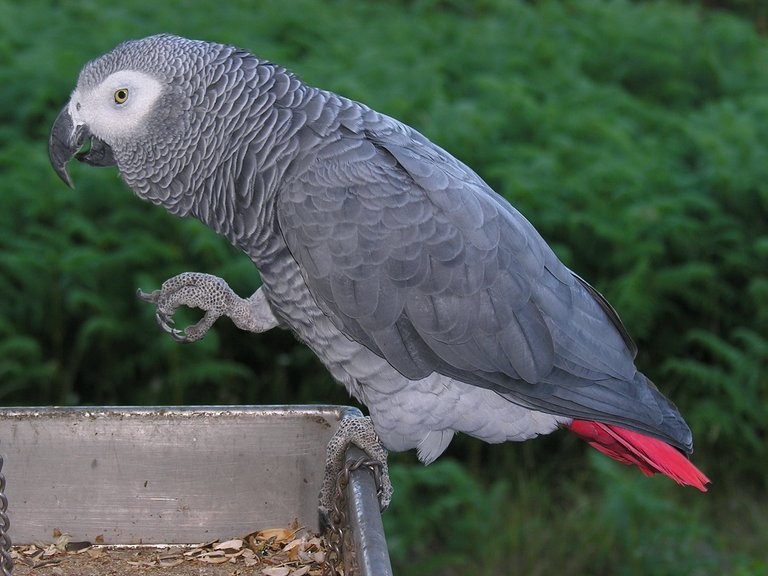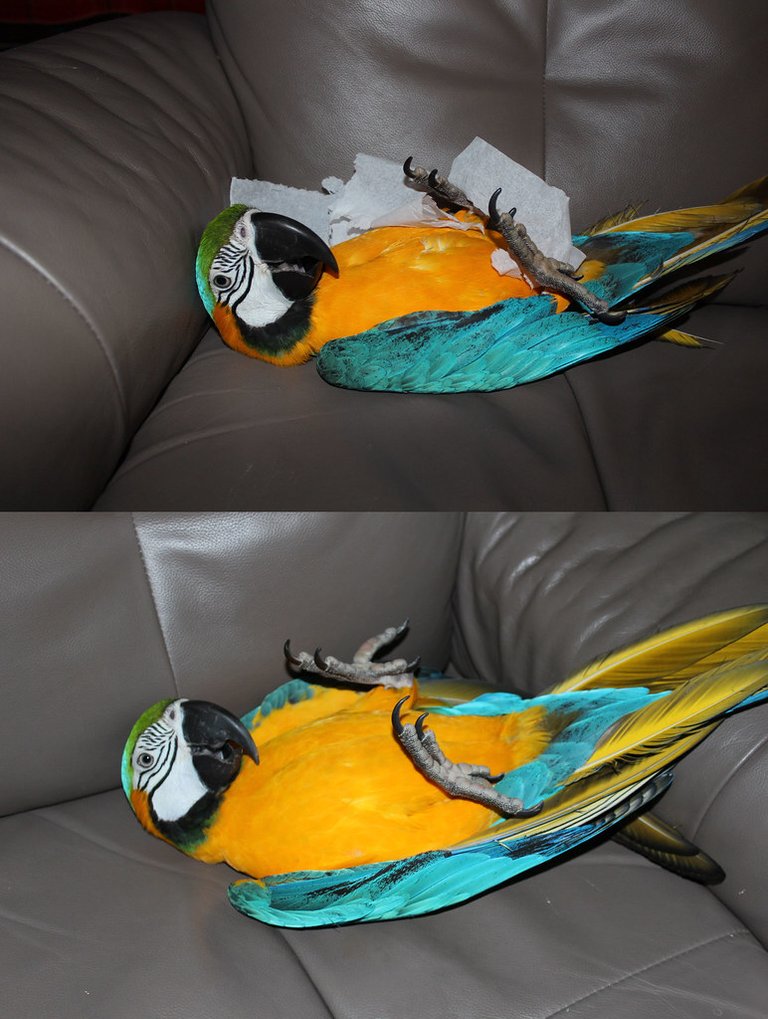The Zoonotic effect of Psittacosis on Humans and Birds
Apart from the normal dogs and cats that happen to be the most common pets in households these days, you may want to come closer and read this post until the end if you are a lover of birds. Parrots are wonderful creatures and a fun pet too for every household.

credit
I will be writing about PSITTACOSIS In today's article, which is, by the way, a zoonotic disease. This disease is caused by the bacteria called Chlamydia psittaci, which infects birds more than humans. Psittacosis is also called parrot fever, or called ornithosis.
If, as a human, you come in contact with birds that are infected with the chlamydia psittaci bacteria, it could affect your lungs, causing symptoms like cough, and muscle pain. It could also cause severe lung infections that may spread to other parts of the body, leading to serious cases of pneumonia, endocarditis, myocarditis, hepatitis, acute respiratory distress syndrome, and endocarditis.
We aren't talking about only parrots as a form of a bird, but other birds like poultry products as well, you also stand a chance of getting infected if you work on a poultry farm or in a poultry processing workshop, if you work in a pet shop where birds are been sold or treated, then you also stand a strong chance of being infected.
When you have a parrot pet, and you get a beak-to-mouth type of contact, if the parrot is infected, there is a high chance that you get infected also.If it happens that as a human you inhale dust from dried droppings from birdcages, then you may get infected.
credit
Not every bird infected with C.psittaci would have a sick appearans, thy are called carriers as they hav a healthy appearance and may only get to shed the bacteria when they are stressed, possibly during the time of struggling with another form of infection, when there is a change of diet, or when they get to live in a crowded space.
Diagnosing the disease is not an easy thing to do as it lots of similarities with other diseases, so a blood test, an X-ray, or other additional types of tests will be carrid out to ascertain the actual and definit result of psittacosis.
Most often, Doxycycline is the antibiotic used for coC.psittaci*, but this may not completely lead to the elimination of the strain, this means the bird is left with a healthy apparance but it remains a carrier, and can easily triggeer it's occurence again when condition gets stressful. In a case where your bird is suffering from a serious strain of the virus,your veterinarianmay include heat, fluids, and other additional forms of treatments.
The quiet unfortunate thing is, there is no vaccine to protect birds against psittacosis. The best method of prevention is to ensure your birds are kept clean, with a good air flow, provision of a healthy nutrition and avoiding stres and overcrowding. It is good to test new birds for avian disease before joining them with other birds, or having them quarantined first is also a good option.
As a bird owner or caregiver, ensure you avoid close contact with sick birds, make it an habit to put on gloves, masks, eye protection, and protectiv clothes to ensure you are properly covered whenever you have to treat a sick bird or clean their homes as a vet.
References
cfsph.iastate.edu/FastFacts/pdfs
cdc.gov/psittacosis/about/index

Thanks for your contribution to the STEMsocial community. Feel free to join us on discord to get to know the rest of us!
Please consider delegating to the @stemsocial account (85% of the curation rewards are returned).
Thanks for including @stemsocial as a beneficiary, which gives you stronger support.